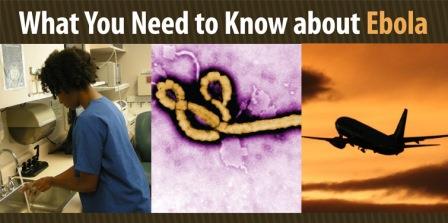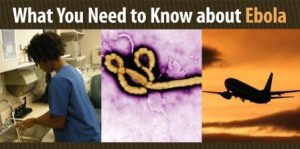Blog
It’s Tempting Enter the Ebola Fray

I’ve tried to hold back from getting into a defensive mode, the urge to try to clarify every assumption about the disease and educate my peers about Ebola. I am not an expert on the subject, and I am only getting my own information from the experts at the U.S. Centers for Disease Control and Prevention (CDC) and the World Health Organization(WHO).
There are plenty of other sources for accurate information about the disease on the internet as well.
But I had no intention to write this, until after best-selling American author and entrepreneur, Seth Godin, got into the Ebola discussion on his blog. Godin thinks “We’, somebody, has Ebola.
It seems something ticked him off. Apparently, Godin is pissed by what he is seeing and hearing regarding Ebola.
‘Cable TV voices that induce panic to make their ratings go up are directly complicit in amplifying the very reactions that magnify the impact of the virus. Attention-seeking media voices take us down. All of us,’ he says
‘We have an urgent and tragic medical problem, no doubt, but we also have a marketing problem’
This is striking. So, read this for yourself.
We have Ebola
It’s tragic but not surprising to watch the marketing of another epidemic unfold.
It starts with, “We” don’t have Ebola, “they” do. They live somewhere else, or look different or speak another language. Our kneejerk reaction is that “they” need to be isolated from us (more than 55% of Americans favor a travel ban for everyone, not just the sick). Even fifty years ago, a travel ban was difficult, now it’s impossible. The world is porous, there are more connections than ever, and we’ve seen this before.
Tuberculosis. Polio. AIDS. Fear runs rampant, amplified by the media, a rising cycle of misinformation, demonization and panic. Fear of the other. Pushing us apart and paralyzing us.
The thing is:
We are they.
They are us.
Education—clear, fact-based, and actionable education—is the single most effective thing we can do during the early stages of a contagion. Diseases (and ideas) spread because of the social structures we have created, and we can re-engineer those interactions to dramatically change the R0 of a virus. Ebola doesn’t ‘know’ that large funerals are traditional, but it certainly takes advantage of them to spread. Ideas don’t ‘know’ that bad news travels fast, and that the internet makes ideas travel faster, but they take advantage of this to spread.
Cable TV voices that induce panic to make their ratings go up are directly complicit in amplifying the very reactions that magnify the impact of the virus. Attention-seeking media voices take us down. All of us.
It’s tempting to panic, to turn away, or to lock up or isolate everyone who makes us nervous. But we can (and must) do better than that. Panic, like terror, is also a virus, one that spreads.
We have an urgent and tragic medical problem, no doubt, but we also have a marketing problem.

